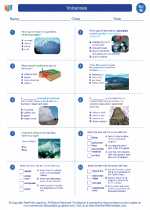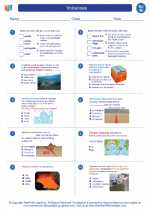Marine Biology
Marine biology is the scientific study of organisms that live in the ocean or other marine bodies of water. It is a branch of biology that focuses on the diverse life forms that exist in marine environments, their behaviors, and their interactions with the marine ecosystem.
Topics to Study
Key Concepts
1. Marine Ecosystems: Study the different types of marine ecosystems such as coral reefs, estuaries, and the open ocean. Understand the interactions between biotic and abiotic factors in these ecosystems.
2. Marine Organisms: Learn about the wide variety of marine organisms including phytoplankton, zooplankton, fish, marine mammals, and invertebrates. Understand their adaptations to the marine environment and their ecological roles.
3. Oceanography: Explore the physical and chemical properties of the ocean such as currents, tides, salinity, and temperature. Understand the interconnectedness of oceanic processes and their impact on marine life.
4. Marine Conservation: Study the importance of preserving marine ecosystems and the challenges facing marine conservation efforts. Learn about sustainable fisheries, marine protected areas, and the impact of human activities on marine environments.
5. Marine Biotechnology: Explore the applications of marine organisms in biotechnology and medicine. Understand the potential for discovering new pharmaceuticals, biomaterials, and biofuels from marine sources.
Study Tips
- Utilize visual aids such as diagrams, videos, and infographics to better understand marine ecosystems and organisms.
- Engage in field trips or virtual simulations to observe marine life in its natural habitat.
- Stay updated with current research and news in the field of marine biology to understand the latest advancements and challenges.
- Practice critical thinking and problem-solving skills when addressing issues related to marine conservation and sustainability.
- Collaborate with peers and professors to discuss and debate different perspectives on marine biology topics.
[Marine Biology] Related Worksheets and Study Guides:
.◂Science Worksheets and Study Guides Eighth Grade. Volcanoes

 Worksheet/Answer key
Worksheet/Answer key
 Worksheet/Answer key
Worksheet/Answer key
 Vocabulary/Answer key
Vocabulary/Answer key
 Vocabulary/Answer key
Vocabulary/Answer key
 Vocabulary/Answer key
Vocabulary/Answer key
